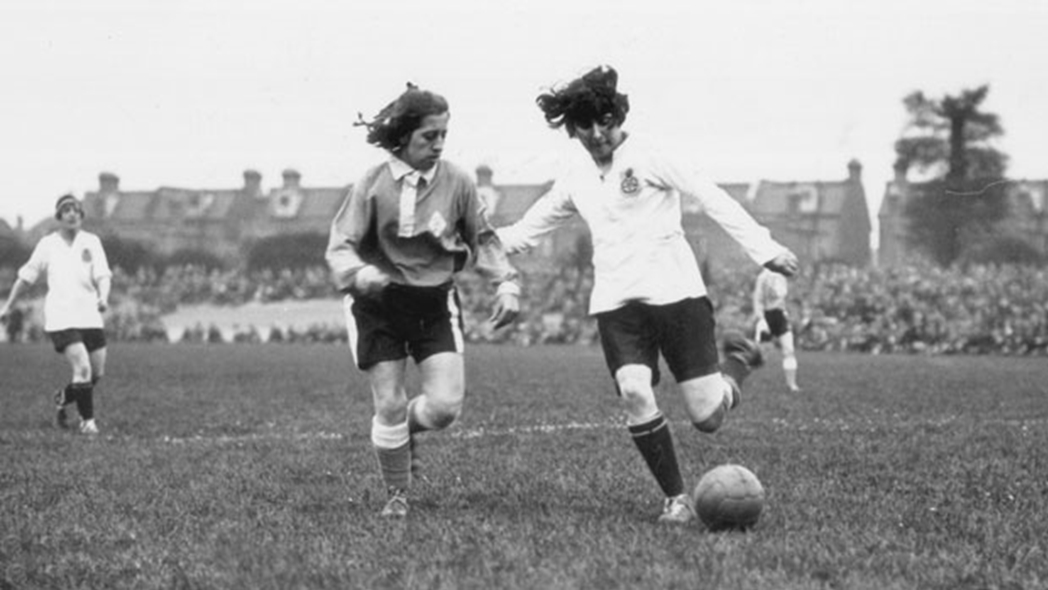Should women be paid less than men to play football? The Brazil and England national teams have just decided to pay them the same…
If you like football, who would you think of if you were asked which player has scored the most goals ever in World Cups? Ronaldo? Or Messi? Some guy from years ago?
Well, no. Actually, it’s not a guy at all. But a girl…She’s from Brazil and is called Marta.

She started being paid to play football when she was just 14. She’s played in five women’s World Cups (that’s also a record!) since 2003, scoring 17 goals. Her 17th came at the World Cup in France last year and it beat the previous record held by a man.
The girl can play…
So, who says girls can’t play football? Well, Marta’s been hearing that all her life, ever since she started playing with her brothers in her village when she was just 4.
She was the only girl on the team. She remembers people in the village would tell her mum that she shouldn’t let Marta play football “because it’s not a game for girls”.
She was just 20 when she was named World Player of the Year for the first time. She said: “My success has only been possible because I didn’t give up the first time someone said ‘No’.” And, of course, everyone in her village cheered!
Fair play for girls
Today, Marta is still playing professional football and also works with the United Nations, the club for world governments, to defend the rights of women and girls – and to fight against the idea that some games are only for boys, or only for girls.
And her other battle? For women to be paid the same for doing the same job as men. Did you know that women footballers on average earn in a year what men playing football earn in just a month?!

(And it’s not just in football that men earn more than women. It’s true in much of the world of work, too, even though it’s supposed to be against the law in many countries.)
But people are discovering that women’s football is every bit as exciting to watch as men. At the World Cup in France last year, crowds in stadiums and people watching on TV were bigger than ever before.
It showed that women’s football could be as popular as the men’s World Cup – so why were they paid less?

Marta and others have kept asking that question. And that’s helping change things. Just this month, in Brazil and in England, the national teams said they would pay women and men players exactly the same. New Zealand, Norway and Australia had already done the same.
Mind the gap
What footballers are paid for playing for their country isn’t a big part of what they earn. Many make more money playing for a league club. But what the national teams have done sets a good example – not just for sport, but for the whole world.
Some people say men should be paid more because more people watch them play. What do you think of that idea?
Did you know that, 100 years ago, the Football Association in England banned women from playing football? And do you know why? Men’s clubs were losing money because fans preferred to watch women playing!

Other sports have also realised that women must be treated the same as men – for example, skiing and ice skating. And last year, women surfers finally got a fair deal after a campaign called “Equal waves, equal pay!”

There’s much more to be done to solve the problem of unequal pay. But we can count on Marta to keep speaking up for fair play!

Problem?
Girls often don’t get treated fairly. For example, women don’t get paid as much as men in many places.

Solution!
Marta spoke up for her rights – and now women are getting equal pay in football. We should all speak up and play fair!
INTERVIEW :
Julien is a headmaster at a primary school near Lyon, in France. He saw that boys were hogging space in the playground, giving the girls no room – and he’s done something to fix that!

WoW! : Hello Julien ! Can you tell us what was wrong with playtimes?
Julien : Hello ! More than half the playground was taken over by just 20 boys playing football. That wasn’t very fair in a school with 250 pupils! I gave football the red card. Then there were more big games, of bulldog, tag and so one, where girls and boys played together. But because we didn’t want to ban football forever, we talked to the children.
WoW! : And today ?
Julien : There’s a pitch marked out, that’s smaller than before and not in the middle of the playground, where the children can play ball games. And girls and boys can sign up for teams that can use it, so there are more girls playing than before. We also bought some giant board games, skittles, huge skipping ropes. All those games are now mixed.
Grown-ups’ follow-up
Reuters has the story on the Brazilian football federation pledging equal pay and the English Football Association saying it instituted equal pay for national team matches this year.
Goal.com has this nice pre-World Cup portrait of Marta Vieira da Silva. For the stats geeks, by the way, the previous (male) record-holder was Miroslav Klose of Germany, whose 16th World Cup goal was scored in the 2014 semifinal victory over hosts Brazil. It took him past the 15 goals (1998-2006) by Ronaldo, of Brazil.
The soccer magazine FourFourTwo, has this account of the extraordinary popularity of women’s football in England during World War One and of how record crowds for the women’s game even after men returned from the front prompted the Football Association to ban women from playing – until 1971.
Forbes has this take on the World Surf League’s move to close its gender pay gap.
The European Commission explains the gender pay gap in Europe, with facts and figures, in this useful briefing paper.
Finally, here’s a video to inspire girls who want to win…




